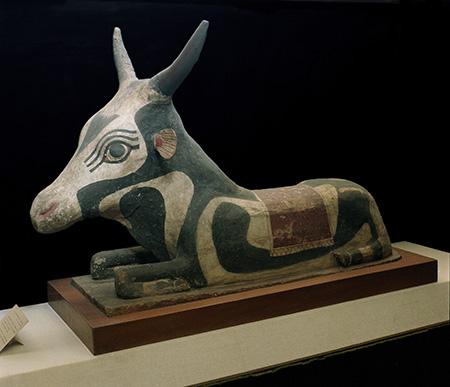“Darlings, Delicacies, Deities & Donations: Ancient Egyptian Animal Mummies as Cultural and Environmental Markers”
Salima Ikram, American University, Cairo
Animals have played a crucial role in human history, and continue to do so until today. The interaction between humans and animals can affect the environment, and vice versa. In the ancient Egyptian Nile Valley, in addition to providing food, transportation, raw materials, companionship and entertainment, animals played a key role in religion. As such, they inspired divine iconography and language, and served both as manifestations as well as offerings to gods. Ultimately, in the twilight of Egypt’s pharaonic history, animals played a part in defining cultural identity and world-view. This talk will focus on a critical locus of this agency: animal mummies in ancient Egypt, and what they tell us not only about Egyptian culture, economy, and human-animal relationships, but also about Egypt’s changing environment.
Salima Ikram is Distinguished University Professor of Egyptology at The American University in Cairo, and has worked as an archaeologist in Turkey, Sudan, Greece and the United States. After double majoring in history and classical and near eastern archaeology at Bryn Mawr College, she received her MPhil in museology and Egyptian archaeology and PhD in Egyptian archaeology from Cambridge University. She previously directed the Animal Mummy Project, the North Kharga Darb Ain Amur Survey, Valley of the Kings KV10/KV63 Mission co-directed the Predynastic Gallery project and the North Kharga Oasis Survey. She has also participated in several other archaeological missions throughout Egypt. She has lectured on her work internatioinally, and publishes in both scholarly and popular journals. She also has an active media presence.
Salima Ikram is Distinguished University Professor of Egyptology at The American University in Cairo, and has worked as an archaeologist in Turkey, Sudan, Greece and the United States. After double majoring in history and classical and near eastern archaeology at Bryn Mawr College, she received her MPhil in museology and Egyptian archaeology and PhD in Egyptian archaeology from Cambridge University. She previously directed the Animal Mummy Project, the North Kharga Darb Ain Amur Survey, Valley of the Kings KV10/KV63 Mission co-directed the Predynastic Gallery project and the North Kharga Oasis Survey. She has also participated in several other archaeological missions throughout Egypt. She has lectured on her work internatioinally, and publishes in both scholarly and popular journals. She also has an active media presence.
| Building: | Rackham Graduate School (Horace H.) |
|---|---|
| Website: | |
| Event Type: | Lecture / Discussion |
| Tags: | History, Humanities |
| Source: | Happening @ Michigan from Institute for the Humanities |


